
Lululemon Throws in the Towel on Mirror Fitness Device, Partners With Peloton
More than three years after acquiring fitness startup Mirror to go after Peloton’s explosive pandemic-era
1970-01-01 08:00

Some children avoid sleepovers due to fears of wetting the bed
Eight in 10 children who experience bedwetting have never attended a sleepover - because they’re too embarrassed. A survey of 742 adults, with children aged 4-11, found that 69 per cent of kids have turned down an invite to a sleepover party. And nearly as many (67 per cent) of parents have declined an invitation on behalf of their child. To help parents and kids deal with the experience, and help kids make friends and gain independence through sleepovers, Pampers Ninjamas teamed up with Dr Ranj Singh on educational and fun content discussing bedwetting, and how to prepare for nights out of the home. The three-part series provides education about why bladder leaks can happen, as well as practical tips on how to manage them, particularly during sleepover moments. Paediatrician, TV presenter and author Dr Ranj, said: “Sleepovers can play an important role in developing the confidence and independence of children, as well as for their enjoyment. “So I am proud to be helping the 82 per cent of children who are currently missing out, to offer practical advice as to how to better prepare for overnight stays with friends and family.” The research also found more than a quarter (26 per cent) of respondents are not comfortable discussing bedwetting with parents hosting sleepovers. And 35 per cent report an increase in bedwetting before going back to school, suggesting scholastic stress could be a trigger. To combat the situation, 76 per cent have invested in a waterproof mattress, while 68 per cent have purchased nappies for older children. Read More Playing with dolls could help a child’s social development Study finds free childcare reform has ‘little benefit’ to poorer families Most children in kinship care living with at least one grandparent, figures show
1970-01-01 08:00
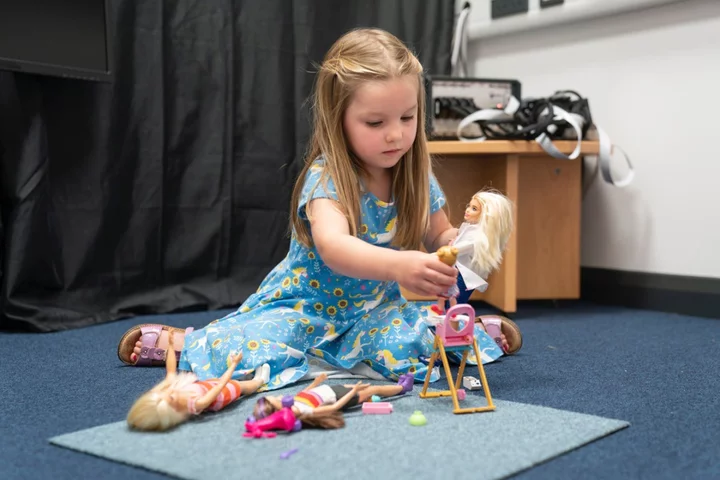
Playing with dolls could help a child’s social development
Playing with dolls could help the social development of children - including those with neurodiverse conditions such as autism, according to a study. The research, from Cardiff University, found children exhibiting higher levels of autism traits showed increased brain activity in a key region associated with social processing when engaging in conversations with individuals during doll play. The new findings suggested that broader social engagement with others while engaging in doll play was a unique pathway to social development for these children. This was in contrast to what was observed in neurotypical children, who were more likely to discuss the dolls’ thoughts and emotions. However, researchers said that despite this difference, it showed that both groups may be able to benefit from doll play by using it as a tool for practising social scenarios and developing social skills, such as empathy. The findings are the latest release from a multi-year study by the Centre for Human Developmental Science at the university’s School of Psychology. Previous years have focused on neurotypical children and found wide-ranging social and developmental benefits of playing with dolls. Now, in its third year, the research team has replicated those results with a more diverse range of participants, including children aged between four and eight displaying both high and low levels of traits associated with autism. Lead researcher Dr Sarah Gerson said: “Our study shows that doll play can encourage social processing in children, regardless of their neurodevelopmental profile. “The findings show that all children, even those who display neurodivergent traits commonly associated with autism, may use doll play as a tool for practicing social scenarios and developing social skills, such as empathy.” State-of-the-art functional, near-infrared spectroscopy equipment was used to explore brain activation while children played with dolls and on tablets, both by themselves and with another person, replicating conditions from the first year of the study. While observing children, researchers saw increased brain activity in the posterior superior temporal sulcus (pSTS) region - which is heavily involved in social and emotional processing such as empathy - when playing with dolls, for both play with a social partner and during solo doll play, but less so during solo tablet play. The study’s results suggest that doll play could support social processing, regardless of a child’s neurodevelopmental profile, but through different pathways. For children displaying fewer autistic traits in the research, talking about the mental states and emotions of the dolls they were playing with was associated with increased pSTS activity. In contrast, for those displaying more autistic traits, talking with others during doll play, even when playing by themselves, led to more social processing on a neural level. Other research has shown that social processing and empathy skills are important determinants in children’s future emotional, academic, and social success. The study was a collaboration with the Wales Autism Research Centre. ‘Create a more inclusive and supportive environment for their development’ Its director Dr Catherine Jones said: “The study reinforces how it is important that that we acknowledge and value neurodiversity. “This means recognising and valuing the diverse ways in which children’s brains work and approaching social development in a way that is inclusive and accommodating for all children, regardless of their neurodivergence. “By embracing all ways that children choose to play, we can create a more inclusive and supportive environment for their development.” Since the landmark publication of Piaget’s theory of cognitive development, the effects of play have been thought to be positive for kids’ social skills and creativity, but this has never been scientifically evidenced at the brain level. The multi-year long-term study, commissioned by Barbie, is the first time key Piaget theories on play have been scientifically evidenced via brain imaging and the first to use neuroimaging evidence with natural doll play, meaning there was no prescribed storyline to show how the brain is activated during doll play. Michael Swaisland, head EMEA of insight and analytics, Mattel, said: “We are proud to know that when children, regardless of their neurodevelopmental profile, play with Barbie, their playtime may benefit their development. “As Barbie continues to inspire the limitless potential in every child, we are delighted to know, through neuroscience, that playing with dolls may encourage the development of social skills such as empathy in children, including those who display neurodivergent traits commonly associated with autism. “We look forward to uncovering even more benefits of doll play through our long-term partnership with Cardiff University as we look to shine a light on the benefits the play pattern has towards development, that parents might not have been aware of.” Parents and caregivers can visit here to learn more about the research and access resources. Read More Toys children play with can have an effect on their success in adulthood The best exclusive discount codes this payday Many parents of under 5s on less than £50k ‘quit work due to childcare costs’ – survey
1970-01-01 08:00
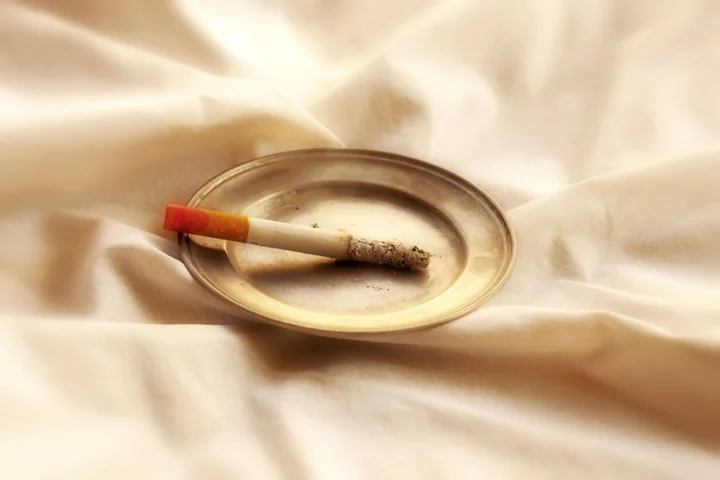
Smokers 2.6 times more likely to give birth prematurely
Women who smoke during pregnancy are 2.6 times more likely to give birth prematurely compared with non-smokers – more than double the previous estimate, new research suggests. The University of Cambridge study also found smoking meant the baby was four times more likely to be small for its gestational age, putting it at risk of potentially serious complications including breathing difficulties and infections. There was no evidence caffeine intake was linked to negative outcomes. We’ve known for a long time that smoking during pregnancy is not good for the baby, but our study shows that it’s potentially much worse than previously thought Professor Gordon Smith, University of Cambridge Professor Gordon Smith, head of the department of obstetrics and gynaecology at the University of Cambridge, said: “We’ve known for a long time that smoking during pregnancy is not good for the baby, but our study shows that it’s potentially much worse than previously thought. “It puts the baby at risk of potentially serious complications from growing too slowly in the womb or from being born too soon. “We hope this knowledge will help encourage pregnant mums and women planning pregnancy to access smoking-cessation services. “Pregnancy is a key time when women quit and if they can remain tobacco free after the birth there are lifelong benefits for them and their child.” The NHS recommends that women who are pregnant should stop smoking and limit their caffeine intake because of the risk of complications to the baby. When the toxins from smoke travel through the bloodstream to the baby, it struggles for oxygen. When this happens it affects their development, and is linked to premature birth and low birthweight, though it has also been linked to a reduced risk of pre-eclampsia (high blood pressure during pregnancy). High caffeine intake has also been linked to lower birthweight and possibly foetal growth restriction. But caffeine can be more difficult to avoid than cigarette smoke as, as well as being found in coffee and tea, it can be found in chocolate, energy drinks, soft drinks and certain medications. Researchers say studies looking at the links between smoking and caffeine and their impact on pregnancy tend to rely on people reporting how much they have consumed, or exposure to smoke, data which is not always reliable. Blood tests for metabolites – chemical by-products created when substances such as tobacco and caffeine are processed in the body – might be more accurate. Researchers at Cambridge and the Rosie Hospital, part of Cambridge University Hospitals NHS Foundation Trust, recruited more than 4,200 women who attended the hospital between 2008 and 2012 as part of the Pregnancy Outcome Prediction (POP) study. The team analysed blood samples taken from a group of these women four times during their pregnancies. To assess exposure to cigarette smoke, the team looked at levels of cotinine, which can be detected in blood, urine and saliva. Only two out of three women with detectable levels of cotinine in every blood sample were self-reported smokers, showing that this measure is a more objective way of assessing smoking behaviour, researchers say. A total of 914 women were included in the smoking analysis. Of these, 78.6% were classified as having no exposure to smoking while pregnant, 11.7% as having some exposure and 9.7% as having consistent exposure. The study, published in the International Journal of Epidemiology, found that compared with those without smoke exposure while pregnant, those with consistent exposure were 2.6 times more likely to experience spontaneous preterm birth. According to the researchers, this is more than double the previous estimate of 1.27 from an analysis of multiple studies. They were also 4.1 times as likely to experience foetal growth restriction. Additionally, babies born to smokers were found to be on average 387g lighter than babies born to non-smokers – that is, more than 10% smaller than the weight of an average newborn. This increases the risk that the baby will have a low birth weight (2.5kg or less), which in turn is linked to an increased risk of developmental problems as well as poorer health in later life. Unlike in previous studies, the team found no evidence that smoking reduced the risk of pre-eclampsia. To assess caffeine intake, researchers looked for the metabolite paraxanthine in 915 women. Of these women, 12.8% had low levels of paraxanthine throughout pregnancy (suggesting low caffeine intake), 74.0% had moderate levels and 13.2% had high levels. The researchers say there was little evidence of an association between caffeine intake and any of the negative outcomes. However, because the researchers did not study all possible adverse outcomes of pregnancy, and some of the outcomes not studied – such as stillbirth – have been associated with higher caffeine intake in previous studies, they cannot interpret the findings as indicating that current recommendations around caffeine intake should be changed. The work was supported by the National Institute for Health and Care Research (NIHR), Cambridge Biomedical Research Centre and the Medical Research Council. Read More Charity boss speaks out over ‘traumatic’ encounter with royal aide Ukraine war’s heaviest fight rages in east - follow live Female students ‘more than twice as likely’ to be affected by poor mental health, research shows Many parents of under 5s on less than £50k ‘quit work due to childcare costs’ – survey 5 trainer trends that will be everywhere this autumn
1970-01-01 08:00

Female students ‘more than twice as likely’ to be affected by poor mental health, research shows
Female university students are more than twice as likely as male students to say they have been affected by poor mental health, new analysis suggests. Data shows 12% of female students say they have been affected, compared to 5% of males. Reported mental health problems among university students have almost tripled in recent years, according to the analysis. The percentage of undergraduate students at universities across the UK who said they had experienced mental health difficulties rose from 6% to 16% between the 2016/17 and 2022/23 academic years. It means one in six undergraduates now reports experiencing mental health challenges. The findings suggest further action should be taken to prevent mental health difficulties arising wherever possible, and that services are adequately resourced to support students quickly when they need help Professor Michael Sanders, King’s College London Analysis by the Policy Institute at King’s College London and the Centre for Transforming Access and Student Outcomes in Higher Education (TASO) found a significant part of this increase occurred in the last 12 months, a period during which the cost-of-living crisis intensified. Poor mental health is by far the most common reason for students wanting to drop out of university. Among those considering dropping out, the proportion citing financial distress as the main reason has risen from 3.5% to 8% between 2022 and 2023. But the general upward trend in mental health problems predates both the rise in inflation and the Covid-19 pandemic, indicating that other factors are likely to be at play, researchers said. The analysis – which drew on a dataset of 82,682 full-time UK undergraduates over seven years – shows some groups are more affected than others. Of the non-binary respondents, 42% said they have been affected by poor mental health, along with 30% of trans people. Bisexual people (28%) have the highest average levels of mental health difficulties among LGBTQ groups across the data, while gay men (14%) have the lowest – although this is still greater than the level seen among straight people (7%). White students (12%) have on average worse mental health than their peers from other ethnicities, but those with a “mixed” ethnicity (12%) are just as likely to have mental health difficulties. Undergraduates who attended state schools (15%) have on average worse mental health than their peers who attended private school (11%), while students who get most of their money through a maintenance loan, grant or paid work are more likely to have mental health difficulties than those on scholarships or with family support. Michael Sanders, professor of public policy at the Policy Institute and author of the study, said: “It’s clear the experiences of mental ill-health among students are deeply unequal, and exist along much the same lines as in society at large, with those from the most disadvantaged backgrounds or who often face discrimination being most likely in general to report struggles with their mental health. “The findings suggest further action should be taken to prevent mental health difficulties arising wherever possible, and that services are adequately resourced to support students quickly when they need help.” Dr Omar Khan, chief executive officer of TASO, said: “This report highlights the persistent and widespread mental health challenges faced by students. “While Covid and the cost-of-living crisis have clearly exacerbated such challenges, the upward trend is not new. “We’re working with the higher education sector to better understand what works to improve mental health outcomes for all students.” It comes as a separate report from the NHS Race and Health Observatory calls for more mental health support for people from Gypsy, Roma and Traveller Communities in England. It said that it is estimated that suicide rates among these groups are up to seven times higher than in other communities. Dr Habib Naqvi, chief executive of the NHS Race and Health Observatory, said: “We know that Gypsy, Roma, and Traveller communities face stark challenges in accessing psychological therapies and other mental health services. “This report lays bare the mental health issues and stigma faced by these communities first hand.” Read More Charity boss speaks out over ‘traumatic’ encounter with royal aide Ukraine war’s heaviest fight rages in east - follow live Many parents of under 5s on less than £50k ‘quit work due to childcare costs’ – survey 5 trainer trends that will be everywhere this autumn 11 ways to work autumnal wonder at home
1970-01-01 08:00
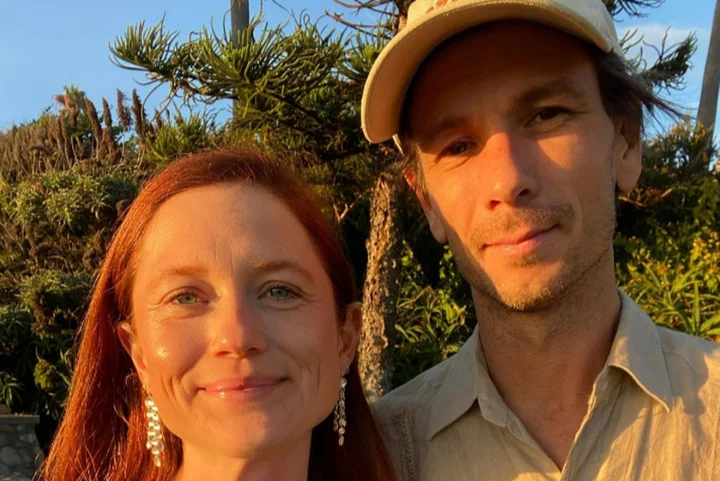
Harry Potter star Bonnie Wright announces birth and name of first child with Andrew Lococo
Bonnie Wright has announced the birth of her first child, sharing the baby’s name and first photo with her social media followers. The 32-year-old actor is best known for playing Ginny Weasley in the Harry Potter film series, which concluded in 2012. In April, she and her husband Andrew Lococo told fans that they were expecting their first child together. On Wednesday (27 September), Wright shared that she’d given birth at home last week, along with a photo of the newborn asleep under a blanket. “Say hello to Elio Ocean Wright Lococo, born at home on Tuesday 19th September,” Wright’s caption began. “We’re all healthy and happy. Andrew and I are so in love with our sun,” she wrote, adding a sun emoji. She continued her caption by praising the doula, midwives, doctor and other maternity professionals for their “amazing” work. “So grateful for our birth team that have held our hands throughout and made the journey so joyous and expanding,” Wright continued. “Birth is the wildest experience!” The actor and writer concluded her caption with a short tribute to Lococo. “Lastly thanks to Andrew my rock throughout birth quite literally as I squeezed onto you so tight and you never wavered. Elio has the most tender loving papa.” In response to the post, many fans and friends of the film star shared warm wishes in the comment section. Evanna Lynch, who played quirky Hogwarts student Luna Lovegood in four Harry Potter films, is one notable figure to have left a congratulatory message – and pointed out an unexpected link to the wizarding franchise. “Awwww congratulations Bonnie and Andrew!!! Welcome to Earth, Elio Ocean!!! ps. Hermione’s birthday twin, I’m sure you’ve been told!!” the Irish actor wrote. Others were quick to make references to the film series, with several naming the birth as the arrival of “another Weasley”. In August, Wright posted photos and video from her and Lococo’s “baby moon” in Laguna Beach, California, as they celebrated their “last quiet holiday as just two”. The couple married on 19 March 2022, a day that Wright has since described as “the best day of my life”. In an interview with Brides magazine earlier this year, she spoke about how her passion for sustainability was reflected in their choices for the ceremony, as well as in her vintage, century-old wedding dress. “The dress didn’t have the original underdress with it as it had likely perished – it being 100 years old!” she explained. “So when I was first trying it on, it was completely see-through. It was quite funny having to imagine the underdress we would end up making for it.” Read More Bonnie Wright admits feeling ‘anxious and frustrated’ by Harry Potter screen time Harry Potter star Bonnie Wright shares new details about her 100-year-old wedding dress Harry Potter star Bonnie Wright announces she’s pregnant with her first child Nick Cannon candidly admits Mariah Carey saved his life amid lupus diagnosis The best napping method to help with pulling an all-nighter Toys children play with can have an effect on their success in adulthood
1970-01-01 08:00
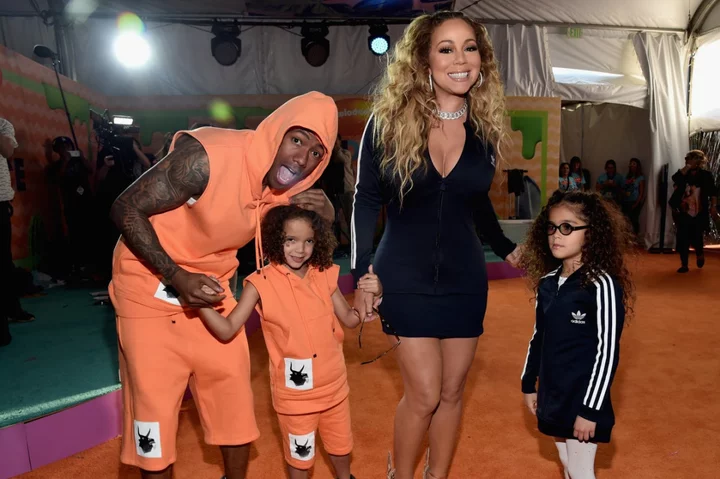
Nick Cannon candidly admits Mariah Carey saved his life amid lupus diagnosis
Nick Cannon has revealed the appreciation he has for ex-wife Mariah Carey during a difficult time. In a recent interview on the Diary Of A CEO podcast, the father of 12 wasn’t afraid to confess that he wouldn’t have survived his 2012 lupus diagnosis if it wasn’t for the “Without You” singer by his side. “She was my rock,” he admitted. “She went hard. To be honest, I probably wouldn’t be alive if it wasn’t for how hard she went with the doctors, with me, my stubbornness.” The Grammy winner, 54 and the former America’s Got Talent host, 42, saw sparks flying almost immediately when Carey cast Cannon as her love interest in the 2008 “Bye Bye” music video. It only took six weeks from the time they got engaged for Carey and Cannon to tie the knot. In 2011, they welcomed fraternal twins Moroccan and Monroe. Unfortunately, Cannon was diagnosed with lupus one year later - an inflammatory disease which occurs when the immune system attacks its own tissues. The Masked Singer host described Carey as “the perfect helpmate, the perfect matriarch, the perfect mom, the perfect wife” during this time. “It probably took a toll on us just because of the person I was in my head and the struggles that I was dealing with,” he continued. “But it definitely brought us closer together.” When podcast host Steven Bartlett asked whether Cannon believed Carey “saved his life”, he simply responded: “I absolutely do.” “But that’s what you do when you find a helpmate. When you find someone that you’re in matrimony with, you go hard for [them],” Cannon pointed out. “I feel like I went hard for her and we’ll still go hard - I lay down my life for her today. That’s what you do, it’s just family.” Cannon went on to explain how his experience with the disease put many things into perspective for him. However, it wasn’t easy for him to see things clearly while he was struggling. In fact, he told Bartlett that he was also dealing with mental health issues at the time, such as questioning his purpose and effect on the world. “Staring up from the hospital bed, staring at the ceiling all alone when everybody else is kicked out, and you gotta be face to face with your higher power, asking all those tough questions. Am I done?” he explained. “A lot of people don’t do that because we get caught up in the constant race of just living day to day, but it slowed down for me on many occasions.” While it may have been difficult for him to comprehend at the time, Cannon said he now lives his days with direction and without fear. “I’m probably reminded of my physical mortality all the time,” he noted. “And when you’re not afraid of dying, you focus on living, you know?” This isn’t the first time the TV personality has praised the “All I Want for Christmas Is You” singer. In 2022, Cannon opened up to Entertainment Tonight about the gratitude he has for his time spent with Carey. “I was talking about the fantasy of it all. I was like: ‘Yo, if I could have that same vibe of where I was at that state in my life and that age, of course I would do that all over again,’” he said. “But I’m not.” In addition to his two children with Carey, Cannon has welcomed Rise, Powerful, and Golden, with Brittany Bell; Zion, Zillion, and Beautiful with Abby De La Rosa; Halo with Alyssa Scott; Legendary with Bre Tiesi; and Onyx with LaNisha Cole. Cannon and Scott lost their baby boy, Zen, to cancer in 2021 when he was only five months old. Read More Nick Cannon’s brother says he can’t remember the 12 names of his nieces and nephews Nick Cannon shares Mariah Carey’s ‘high frequency’ reaction to actor having 12 children Mariah Carey: 'Music was my escape' The best napping method to help with pulling an all-nighter Toys children play with can have an effect on their success in adulthood Summer of female sporting events inspires millions of women to get back into the game
1970-01-01 08:00

The best napping method to help with pulling an all-nighter
Pulling an all-nighter for an exam? Or do you work night shifts that you just can’t avoid? Well, researchers have revealed the optimal napping method to help combat fatigue during a 16-hour overnight duty. The research looked at data from pilot studies on night shifts conducted from 2012 to 2018 and found that the analysis could also be the key to providing relief for sleep-deprived mothers and fathers. The team found that scheduling two nap sessions – a 90-minute nap followed by a quick 30-minute nap later – is the optimal choice over a single 120-minute rest for delaying fatigue and sleepiness. “A 90-minute nap to maintain long-term performance and a 30-minute nap to maintain lower fatigue levels and fast reactions, as a strategic combination of naps, can be valuable for early morning work efficiency and safety,” said study author Sanae Oriyama, a nursing science professor at Hiroshima University’s Graduate School of Biomedical and Health Sciences. The study, published in the journal Scientific Reports, found that many professions, including those in emergency sectors, have a lot of night shift work which can in turn increase the risk for sleep-related physical and mental health disorders and impair job performance. When daytime comes, the human body has a light-sensitive internal clock that activates wakefulness, and at night, this pushes the human body towards sleep. Study authors say because of this, the likelihood of errors and accidents during a night shift is elevated. In the medical field, this may inadvertently lead to serious harm to patients or to oneself, and naps are usually taken by shift workers to offset disruptions to the body clock. For the study, researchers looked at 41 women in their 20s who underwent a simulated 16-hour shift in a controlled environment, where factors, such as light and temperature, were standardised. Participants underwent hourly tests, including the Uchida-Kraepelin test (UKT) for assessing task speed and accuracy, and measurements of drowsiness, fatigue, heart rate and blood pressure. Professor Oriyama found that women who took a single 120-minute nap suffered increased drowsiness from 4am onward. Those who had two naps, a 90-minute nap followed by a 30-minute nap, postponed their drowsiness until 6am. Researchers suggest adding an extra 30 minutes of shut-eye between 5am and 6am, given that drowsiness might shoot up from 7am to 8am. All nap participants reported fatigue between 4am and 9am, whereas the dual-nap group reported less intense fatigue. “During a night shift that, for example, lasts from 4pm to 9am the next morning, a split nap of 90 minutes and 30 minutes, ending at 12am and 3am, respectively, is thought to be more effective than a 120-minute monophasic nap ending at 12am when tasks requiring quick responses to maintain a high level of safety are scheduled between 2am and 9am.,” Professor Oriyama said. The study also revealed that the duration of the nap plays a crucial role. The later you take it, it will become more difficult to fend off sleepiness and exhaustion. However, delaying it too much could interfere with your focus as your sleep drive builds up. “Hence, the ideal time for taking a nap and the ideal nap schedule during long night shifts need further elucidation,” Professor Oriyama added. Read More Why is my teenager sleeping so much? Sounds that can help you fall asleep better How to sleep during hot weather, according to experts Sounds that can help you fall asleep better How to spend the perfect healthy Super Saturday – according to science Summer of female sporting events inspires millions of women to get back into the game
1970-01-01 08:00
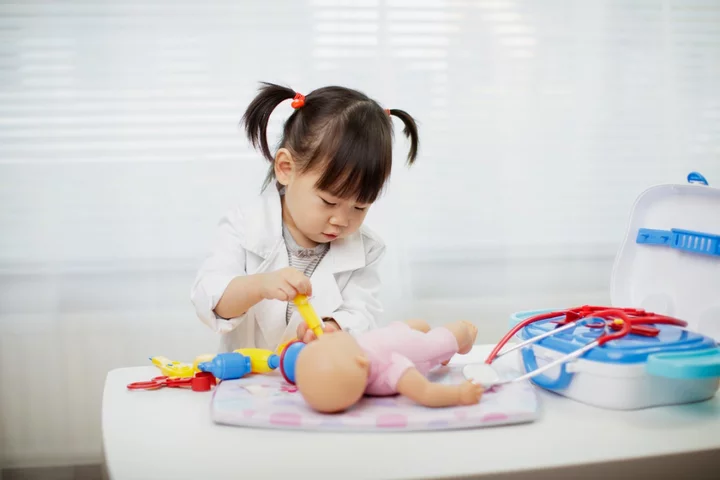
Toys children play with can have an effect on their success in adulthood
The type of toys children play with can have a profound effect on their success in adult life, according to an academic report. Dr Jacqueline Harding, a child behavioural expert, said repetitive childhood play can provide a long-lasting memory imprint and have the potential to subconsciously steer their career path. And they can help develop and deepen problem-solving abilities and improve imagination and creativity. Dr Harding explained how joy in early life from playing with toys can become a strong driver in later life decisions. It follows research of 1,000 parents of 0-7 year olds, which found 75 per cent buy toys they hope will contribute towards their child’s future success. More than half (51 per cent) deem their child’s playthings very important to develop their critical skills, crucial for everyday life. The study was commissioned by Mattel, creators of Thomas & Friends, which has released a white paper from King’s College London revealing the social and cognitive benefits of train play for children. Dr Jacqueline Harding said: “Favourite toys tend to be played with almost every day and it is this repetitive act that can leave an imprint on the young developing brain. “So, it almost goes without saying that the playthings young children engage with on a regular basis can have a long-term effect and may even subconsciously steer them in a particular career direction. “Of course, this is hard to prove beyond doubt as there are so many other factors involved - but taking toys seriously is a good idea as children spend so much time engaging with them, and choosing wisely according to their individual interests can pay real dividends.” The biggest benefit parents believe children get from toys when it comes to improving critical skills is the improvement in their fine motor skills (68 per cent). Almost as many (67 per cent) said it was how toys drive imagination and creativity, while 63 per cent think toys can help with problem-solving skills. While 86 per cent went as far as saying they think toys can have a large or moderate impact on improving a child’s chances of a successful career, in the future. But when it comes to actually choosing toys for their children, the top priority is that it they are age-appropriate (59 per cent). Others want to ensure the toy is safe (55 per cent) or more than its perceived educational value (47 per cent). It also emerged 58 per cent have particular brands or toy lines they turn specifically for their developmental value. But 21 per cent fear their little ones don’t play with educational toys as much as they’d like, according to the OnePoll.com data. Dr Harding added: “One astounding insight is that at two years of age children engage in the same level of mental work as adults whilst engaged in imaginative play. “It is well established that imaginary play and creative pursuits offer up a wealth of surprising benefits that have exciting biological and neurological benefits for children and adults. “During childhood, the brain is known to be particularly absorbent – this is known as ‘neuroplasticity’. “In other words, it is easier to learn aspects of life – so not only does play yield a significant benefit during childhood itself but also in later adult life.” It comes after a separate white paper by Dr Salim Hashmi, a researcher from King’s College, reviewed more than 1,600 scientific research papers to explore the advantages of playing with toy trains. One of the primary benefits Dr Hashmi identified was children who play with toy trains can develop better thinking and social skills, allowing them to learn and practice collaboration, cooperation, and social understanding while interacting with others. His study also highlighted how playing with toy trains allows children to develop and refine essential thinking skills, contributing to their problem-solving abilities. Talking about his research for Thomas & Friends, Dr Hashmi said: “Constructing tracks, arranging train cars, envisioning scenarios, and enacting them during train play can stimulate cognitive development and enhance critical thinking, spatial analysis, and decision-making skills. “Collaborative play with toy trains could help encourage teamwork, negotiation, and collaboration, as children share resources, ideas, and play together. “Additionally, playing with toy trains provides children with opportunities to develop and practice problem-solving abilities. “Overall, train play, is an excellent way for children to develop key skills.” Top tips on choosing a toy for your child: 1. Take time to watch your child playing and try to get ‘into their thinking’ – what appears to light up their brain? 2. Guide children towards toys and play experiences that meet the need for them at their stage of development. 3. Be aware of the types of play that can aid them in their future – toys that help them begin to connect with others (when they are developmentally ready and able to do so). 4. Play with your child in a way that does not take over but allows them agency - a little control. 5. At other times, sit back and allow your child space to think while they play - being mindful that in their brain so much is taking place. 6. Talk to your child in ways that they can understand about what they are doing while they play – just gentle questions not an inquisition. Children often wish to share with adults what they have achieved or what matters to them while they play. 7. Allow your child time to explain what they are doing. Younger children will perhaps just show you rather than talk about it while older children might wish to discuss how they solved a problem or found a solution while they played. 8. Help children begin to collaborate with others while they play. Sometimes this may just involve keeping a watchful eye and ensuring a fair distribution of resources, so conflicts are avoided. 9. Relish play and be respectful of the power it yields in terms of a child’s mental health and general wellbeing. 10. Guide children towards toys and play experiences that are inclusive and not gender specific. Read More Study finds free childcare reform has ‘little benefit’ to poorer families Couples delay getting married in order to buy new home Most children in kinship care living with at least one grandparent, figures show Sophie Turner and Joe Jonas reach agreement after child custody row Comedian Ashley Blaker on why he wants to ‘change the conversation’ around children with special needs Brian Austin Green gets candid about co-parenting with Megan Fox
1970-01-01 08:00
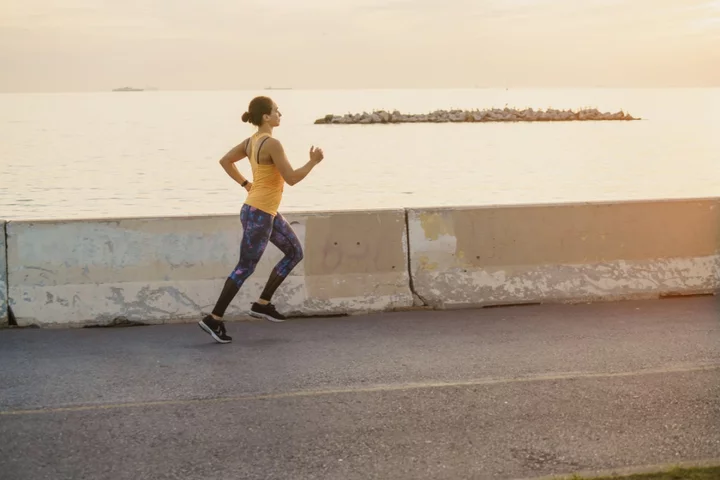
Summer of female sporting events inspires millions of women to get back into the game
A bumper summer of female sporting events has inspired millions of women to get back into sports after years of fear and judgement. Encouraged by competitions such as the FIFA Women’s World Cup, the Women’s Ashes and Wimbledon, 59 per cent of women have started training with an old sports team again. A poll of 2,000 females aged 18-65 found 46 per cent feel motivated to try sport after seeing the empowerment and determination showed by these professional female sporting stars. It also emerged 31 per cent of women over 45 played sports when they were younger but dropped out as a teenager, with being ‘too sweaty’ and not feeling ‘good enough’ to take part among the top reasons. But now, many are dusting off their boots, digging out their racquets and getting back to action. Sure UK, a supporter of women’s sports, commissioned the research after launching the Breaking Limits: Girls Can Football Series, which aims to provide funding and training to give young people access to sport coaches, communities and safe spaces. Former Lionesses goalkeeper Carly Telford, who is partnering on the campaign, said: “Too many women have missed out on years of enjoyment, fitness and socialising due to feeling unable to continue with team sports and it’s about time they feel inspired to get back into the sports they enjoy without fear. “There’s still a long way to go and so much more that we need to do to promote women’s sport in all corners of the world. “To normalise women succeeding on pitches, courts and fields should be everyone’s goal, and both consumers and organisations have roles to play to make this a reality.” The study found there is more to do though, with 77 per cent of women believing that society needs to promote female sporting role models. While 36 per cent worried about being treated differently to men if they were to participate in sports, leaving 64 per cent put off trying sports altogether as a result. But putting worries aside, the future of women in sport looks bright, with the most popular sports they’d like to be involved in named as football (37 per cent), netball (21 per cent) and athletics (15 per cent). A quarter voted netball as the most inclusive sport for women, followed by athletics (15 per cent), and football (15 per cent). And half believe women’s football will eventually be as popular as men’s football – if not more. For 74 per cent, playing as part of a team has worked wonders for their mental health, while 51 per cent said sports has had a positive influence on their life overall. As 46 per cent of those polled, via OnePoll, feel motivated to try a sport after seeing the empowerment and determination showed by the sporting stars. ‘Movement has the power to transform lives’ Alice Duffill, from Sure UK&I, said: “Movement has the power to transform lives. “Everyone should be able to experience all the incredible physical, mental and social benefits movement bring - whoever you are, however you move. “But in our increasingly unequal societies, social, economic, and physical barriers stand in the way. “Inspiring women and girls to play sport through promoting and raising awareness professional athletes who look like them is key in breaking down some of those barriers. “That’s why we’re committed to growing women’s sports as we know the importance of shining a light on professional women athletes to help inspire today’s and tomorrow’s girls”. Read More Study links ultra-processed food and drink to risk of depression in women Study finds women only give themselves 30 minutes of self-care a week Women respond to viral TikTok prompt asking about ‘female version’ of male Roman Empire obsession The cure for smelly garlic breath? Turns out, it’s simpler than you think Teenager’s death after drinking too much water was ‘preventable’ Could bats hold the secret to beating Covid and cancer?
1970-01-01 08:00
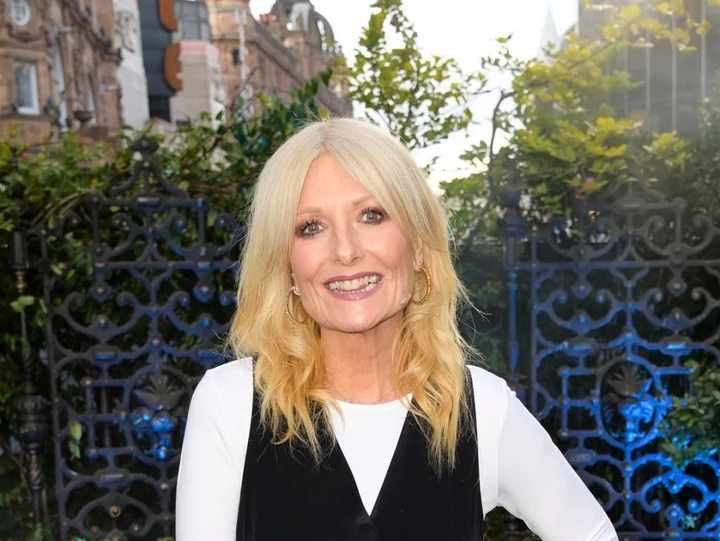
Gaby Roslin says she’ll ‘never apologise’ for saying she’s happy post-divorce
TV presenter Gaby Roslin has said she will “never apologise” for telling people she’s happy, after she experienced moments of grief following her divorce. The former The Big Breakfast presenter and author, 59, was married to musician Colin Peel for almost a decade. They share a daughter together. “Not all my life has been joyful. My mum died young. I’ve been through divorce and lost some of my dearest friends,” she told Prima magazine. “You go through those things and you realise that life is precious and, without sounding trite, I will never apologise for saying I’m happy.” Roslin’s mother died just over 20 years ago, around the time she was beginning a new job. The TV star said that it feels like she and her husband of 18 years, David Osman, “fit together”. She shares another daughter with Osman. “We still really appreciate what we have,” Roslin, who presents a show on BBC Radio London along with sints on BBC Radio 2’s The Zoe Ball Breakfast Show and BBC One’s Morning Live, said. “The things that makes it work is that we’re not in competition with each other: We’re very, very different.” Speaking about how “life is crappy for a lot of people”, she added: “I’m someone who has always been very positive and full of laughter, but I’m aware that it’s not something everyone can hold on to. “There are coping mechanisms that have helped me, and I know they can help others, too.” Roslin revealed that some of her personal coping mechanisms have included giving up alcohol five years ago, and going for walks. “There’s a lot of ageism out there,” she said. “It’s no secret in my industry, but it’s everywhere. You can’t do this or that if you’re a certain age. No! I’m lucky that I’ve carried on working, but I have friends who have experienced it. “I know an actor who, at 55, was going for the part of someone older than her and was told that she was too old. They cast a 40-year-old. That’s so wrong.” Roslin is preparing to release her new guided journal, Spread The Joy: Simple Practical Ways To Make Your Everyday Life Brighter, which focuses on stories, illustrations, anecdotes and tips and tricks. The full interview is available now in Prima’s November issue in supermarkets and online at Mags Direct. Additional reporting by Press Association. Read More Sophie Turner and Joe Jonas reach agreement after child custody row Who is Laura Gallacher, Russell Brand’s wife of six years? Everything we know about Katy Perry and Russell Brand’s short-lived marriage Why is my teenager sleeping so much? Sounds that can help you fall asleep better Holidays to the homeland could help children hold onto family’s original language
1970-01-01 08:00

The 1975 to go on 'indefinite hiatus' from live shows
Matty Healy made the announcement whilst performing in the US.
1970-01-01 08:00
